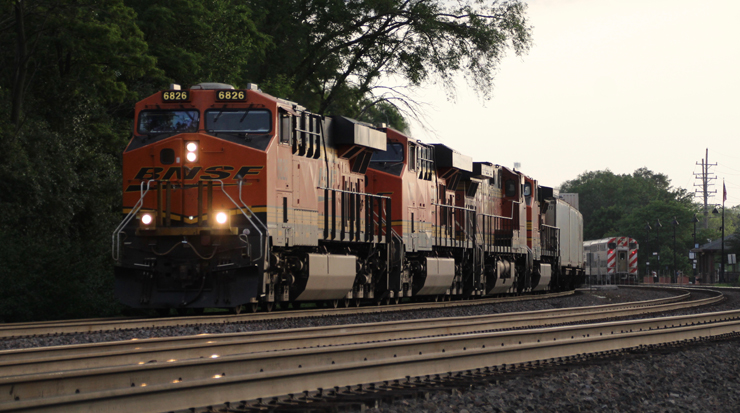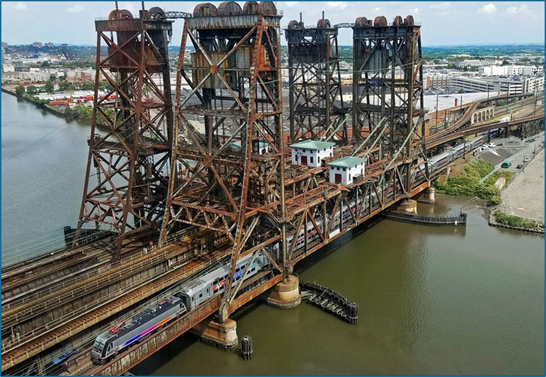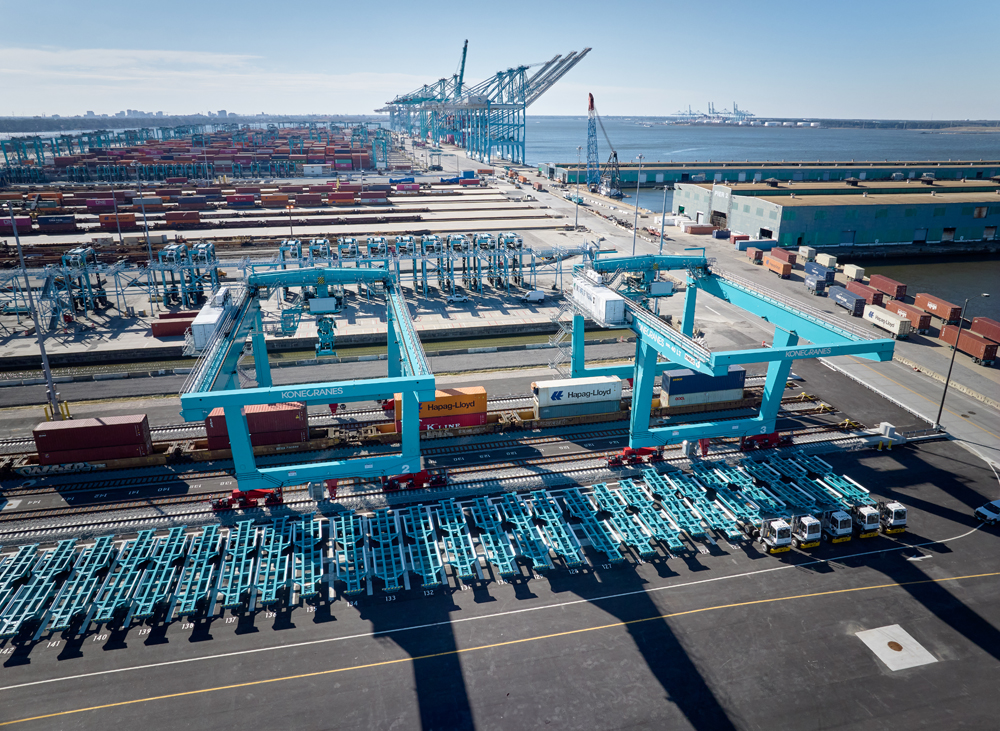WASHINGTON — Large-volume customers that U.S. and Canadian railroads count on are increasingly being hit by the escalating China trade war. Agriculture and automobiles are among the top targets of retaliatory tariffs set by China, which also include aircraft, plastic products, chemicals and other commodities.
At Monday’s close of the G-7 Summit in Biarritz, France, President Donald Trump told reporters, “China wants to make a deal.” But he also warned, “If they don’t make a deal, it’s going to be very bad for China.”
A frantic weekend began Friday when China’s Ministry of Finance announced $75 billion worth of new tariffs, apparently in response to U.S. tariffs announced Aug. 1. China also announced that 25% tariffs on automobiles and auto parts that had been suspended following last year’s U.S.-China meeting in Argentina would be reinstated.
A statement from China’s government blamed “the continuous escalation of Sino-US economic and trade frictions, which seriously violated the consensus of the two heads of state in Argentina and the consensus of the Osaka meeting.”
Trump replied by tweeting, “We don’t need China and, frankly, would be far better off without them,” and followed that with a tweet ordering American companies “to immediately start looking for an alternative to China, including bringing your companies HOME and making your products in the USA.”
The U.S. president then announced on Twitter that tariffs on $300 billion worth of goods, set to begin Sept. 1, will be increased from 10% to 15% and those scheduled for Oct. 1, affecting $250 billion of imports, will be raised from 25% to 30%.
Already stung by tariffs and massive flooding in the Midwest, U.S. farmers see no relief.
“China’s announcement of imposing additional tariffs on $75 billion of U.S. imports signals more trouble for American agriculture,” Zippy Duvall, president of the American Farm Bureau Federation, said in a statement.
Year-to-date soybean exports to China are nearly half of 2018 levels, based on data from the U.S. Department of Agriculture. Farmers, the agriculture industry, and railroads have invested heavily in soy production and transportation.
“The longevity of this situation means worsening circumstances for soy growers who still have unsold product from this past season and new crops in the ground this season,” said Davie Stephens, president of the American Soybean Association, in a press release.
The U.S. exported nearly $10 billion worth of autos and auto parts to China in 2018, but the Wall Street Journal reports that Ford, Tesla, BMW, and Daimler, which manufacture vehicles in the U.S for export to China, will be hit hard by increasing tariffs.
U.S. rail shipment of motor vehicles and parts are off 2.3% year-to-date, while intermodal units are down 3.8% [see “AAR: Carloads and intermodal shipments drop again for week of Aug 17,” Trains News Wire, Aug. 22, 2019].
Maersk, the world’s largest container ship operator, told Bloomberg that if all the announced tariffs are implemented, worldwide container volume in 2020 could be cut by up to 1%. That would be a loss of 7.5 billion TEUs (20-foot equivalent units).
Even as world trade faces a decline, global supply chains are already being reshuffled.
While some production is returning to America, it’s Mexico, Vietnam, India, Thailand, and Malaysia that are reaping the largest benefits of the trade war. Meanwhile, the U.S. trade deficit continues to climb, as it has every year since the recession low in 2009.
Both President Trump and French President Emmanuel Macron, host of this year’s G-7 Summit, expressed frustration with the World Trade Organization’s handling of trade relations and said they are looking at fixes. “We’re going to change the rules of world trade,” Macron says, signaling more challenges ahead for logistics providers.















Robert, well said.
When the elephants dance, the ants get trampled